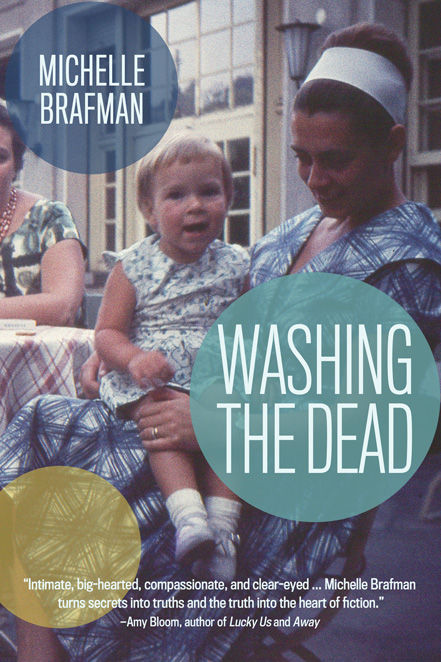
Washing the Dead
کتاب های مرتبط
- اطلاعات
- نقد و بررسی
- دیدگاه کاربران
نقد و بررسی

March 1, 2015
After decades spent suppressing sad and angry feelings toward her mother for adultery and the destruction of her childhood happiness, it's time for anguished Barbara Blumfield to make peace with her parent and herself.The pendulum swings, slowly, from toxic rage and instability to all-embracing forgiveness in Brafman's debut, a three-generational mother-to-daughter family portrait that almost loses itself in a vortex of introspection. Although now in her 50s, with a husband, successful teaching job, and daughter of her own, Barbara has never been able to confront or forgive her mother, June Pupnick, for her affair with the "Shabbos goy" in their Orthodox Jewish community in Milwaukee. "My mother torched my home, my shul," Barbara mourns, full of emotional discomfort, guilt for keeping her mother's secrets, and skepticism that she can be a good-enough parent to her own daughter, Lili. Brafman's sober, earnest novel mines this sensitive territory obsessively, focusing on Barbara's yearnings and undigested feelings to the exclusion of almost everything else. Crosscutting between the 1970s and 2009, the narrative juxtaposes the crises of the past-June's transgressions, a child care episode in California that ended badly, a breakdown-with the problems of today, which mainly involve Lili. Barbara's coping mechanisms start to fail in the face of the reappearances of the compassionate rebbetzin (rabbi's wife) of her childhood and also of her mother, newly restored to town by Barbara's brother after her diagnosis of Alzheimer's. And there's more, with Brafman ratcheting up the pressure until a very late shift in perspective that, enhanced by an intervention from Lili, allows ill feelings to be swept away in a tide of comprehension and compassion. Sincere but long-winded, Brafman's story cycles through a limited range of emotional chords, to numbing effect.

November 1, 2015
Having grown up in the Orthodox Jewish community in Milwaukee in the 1970s, Barbara is traumatically exiled as a teenager after her mother has an affair with a "Shabbos goy" (a non-Jew who performs certain types of work). Barbara finds peace, forgiveness, and closure through the act of performing tahara, the ritual washing of the dead. A fast-paced and compelling debut novel, the book's narrative shifts between the 1970s and the early 2000s.
READ-ALIKES Robyn Bavati's Dancing in the Dark, Eishes Chayil's Hush, Eve Harris's The Marrying of Chani Kaufman, and Anouk Markovits's I Am Forbidden.
Jewish Book Month, November 6-December 6, provides the perfect opportunity to explore the varied themes presented here. Begun in 1925 when Fanny Goldstein, a librarian at the West End Branch of the Boston Public Library, set up a display of Jewish-themed books, Jewish Book Week was soon adopted by communities across the country. In 1943, Jewish Book Week was extended into a monthlong celebration observed each year during the month preceding Hanukkah. For more information and to order a Jewish Book Month poster and kits, go to jewishbookcouncil.org.
Copyright 2015 Library Journal, LLC Used with permission.

April 15, 2015
Barbara grew up in an Orthodox Jewish community in Wisconsin until her mother's affair shamed and ostracized her family. Now a wife and mother in her own secular Jewish household, she has no communication at all with the community of her past and interacts as little as possible with her mother. That changes when her beloved childhood teacher dies, and the rabbi's wife from the community asks her to participate in the sacred ritual of washing the body. Barbara feels compelled to take part in the rite, and as the walls she'd once built up around her past begin to fall, she realizes there is a lot she doesn't know. She wants answers, but with her mother fading fast and her own daughter struggling with her future, the window of opportunity to make things right for the next generation is narrowing. Brafman's first novel is a heartfelt story of loss, hope, and reconciliation. Through her authentic portrayal of a Jewish community, she captures the complex essence of the mother-daughter relationship with honesty and sincerity.(Reprinted with permission of Booklist, copyright 2015, American Library Association.)

























دیدگاه کاربران